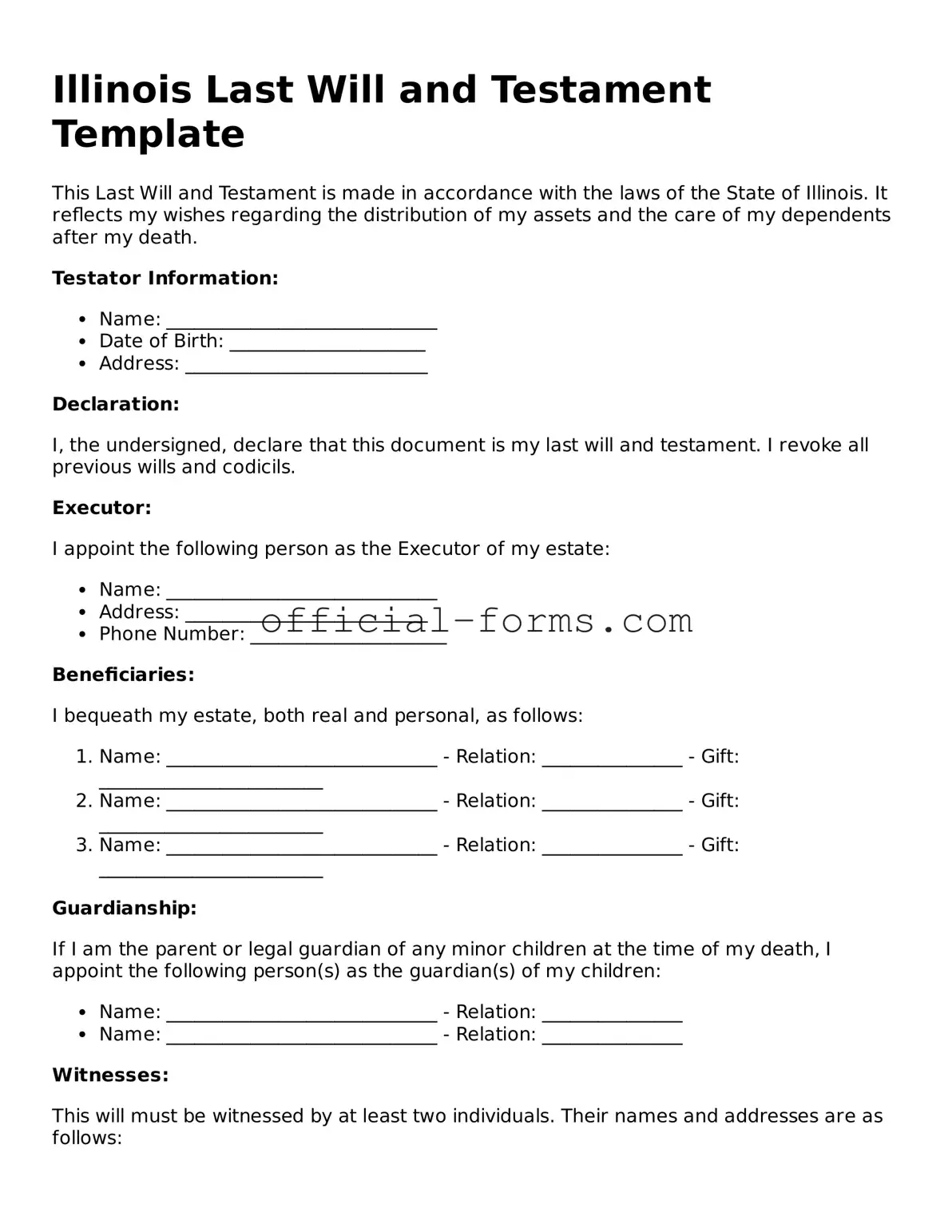Creating a Last Will and Testament is an important step in planning for the future. However, many individuals make common mistakes when filling out the Illinois form, which can lead to complications down the road. Understanding these pitfalls can help ensure that your wishes are honored and that your loved ones are taken care of.
One frequent mistake is not being specific about the distribution of assets. When individuals simply state that their belongings should go to “my family” without detailing who gets what, it can lead to confusion and disputes. It is crucial to clearly name beneficiaries and specify what each person will receive. This clarity can prevent misunderstandings and ensure that your intentions are carried out as you envisioned.
Another common error is failing to sign the will properly. In Illinois, a will must be signed by the person making it, known as the testator, and it must also be witnessed by at least two individuals. If the will is not signed or witnessed correctly, it may be deemed invalid. Always double-check that all signatures are in place before considering the document complete.
People often overlook the importance of updating their will after significant life events. Changes such as marriage, divorce, or the birth of a child can affect how assets should be distributed. Not revising the will to reflect these changes can lead to unintended consequences, such as leaving out loved ones or including individuals who are no longer part of your life.
Additionally, some individuals mistakenly assume that a handwritten will, also known as a holographic will, is acceptable in Illinois. While Illinois does recognize holographic wills under certain circumstances, it is generally safer to use a formal typed document. This reduces the risk of ambiguity regarding your wishes and helps ensure that the will meets all legal requirements.
Another mistake is failing to consider the tax implications of the estate. Many people do not realize that their estate may be subject to taxes after their passing. Not addressing these financial aspects in the will can lead to significant burdens for beneficiaries. Consulting with a financial advisor can help clarify any potential tax issues and ensure that your estate is managed in the most tax-efficient manner.
Lastly, individuals sometimes neglect to communicate their plans with family members. While a will is a legal document, discussing your wishes with loved ones can provide clarity and peace of mind. Open conversations can help prevent disputes and ensure that everyone understands your intentions. This proactive approach can foster harmony among family members during a difficult time.

